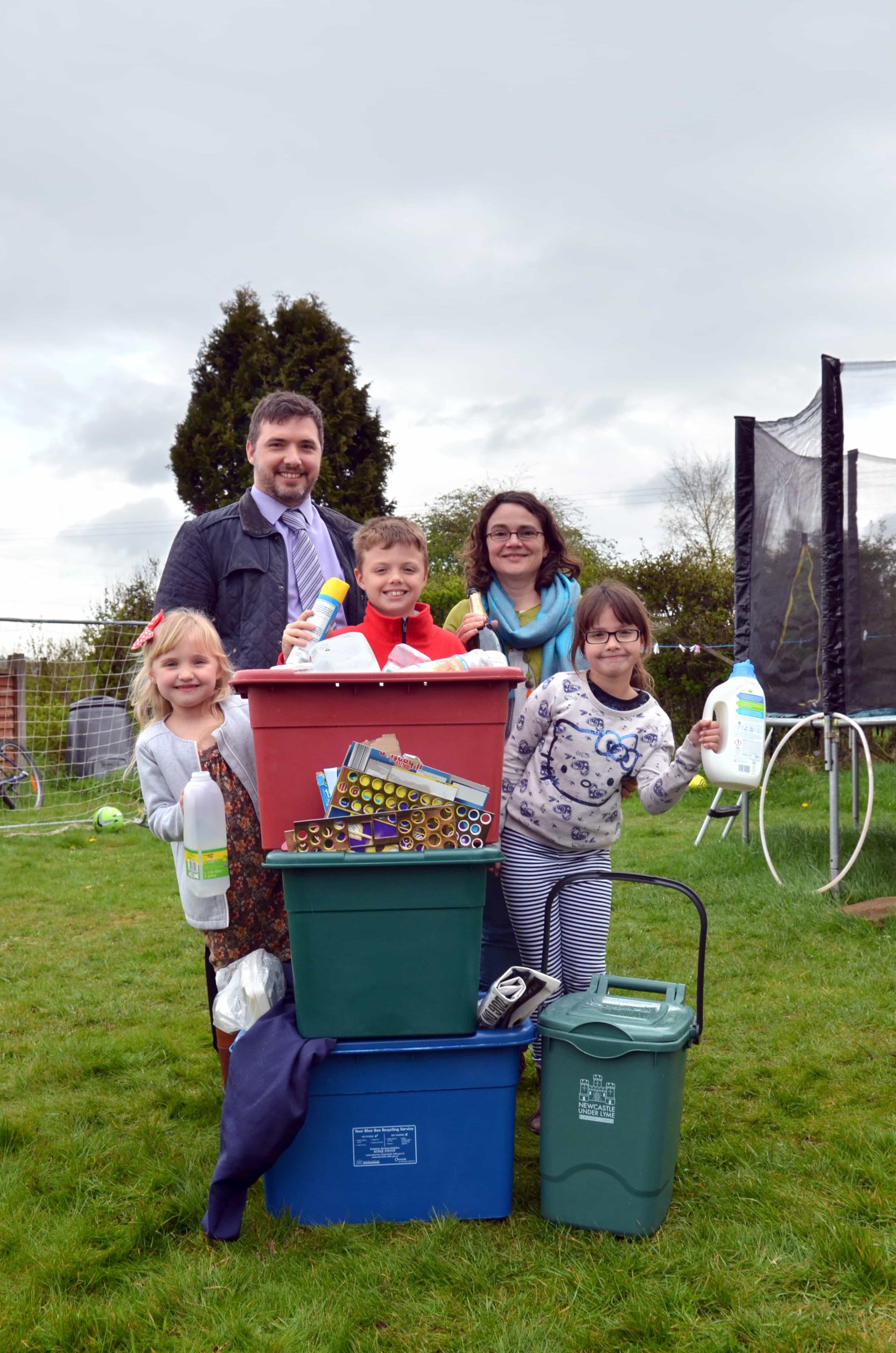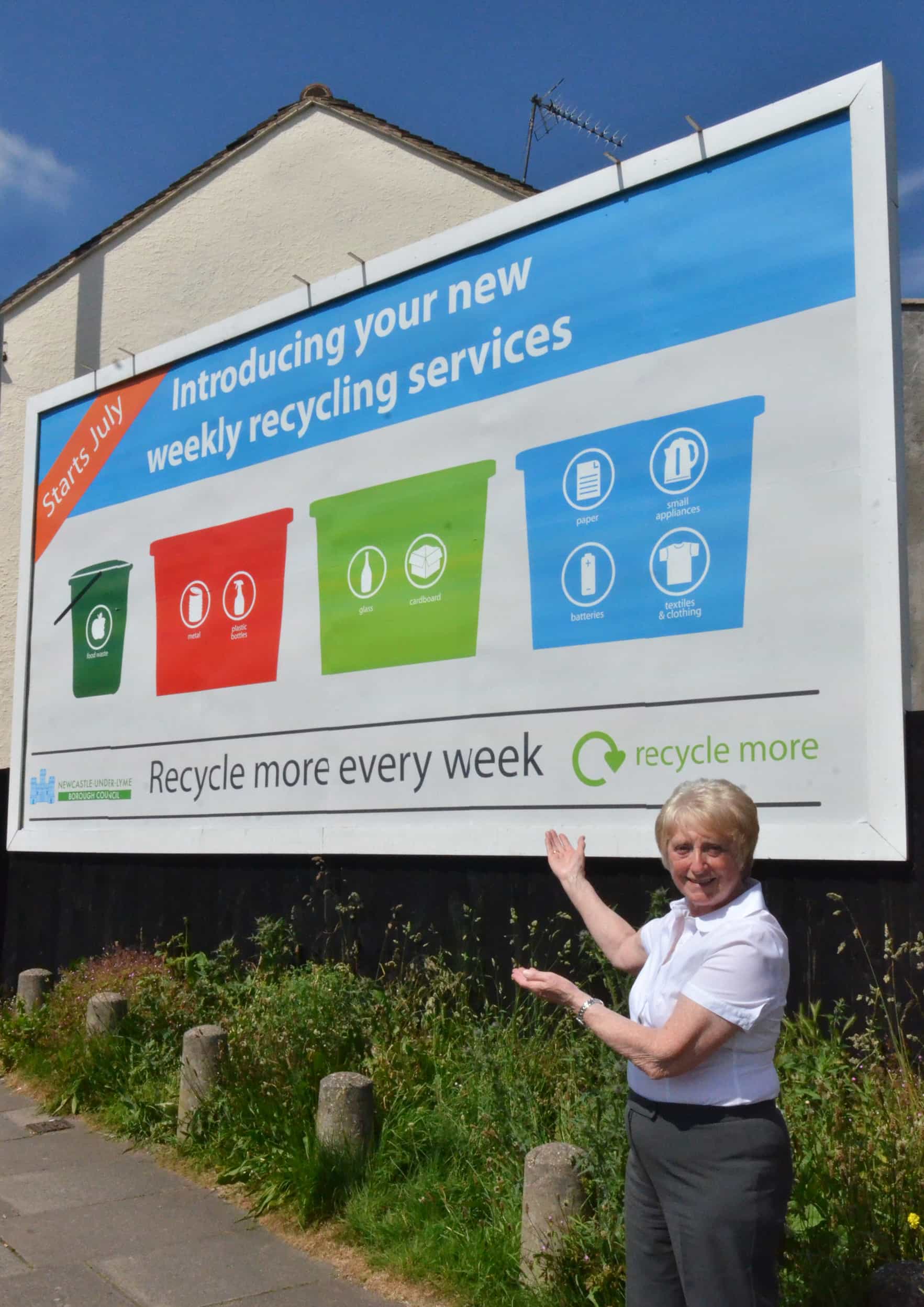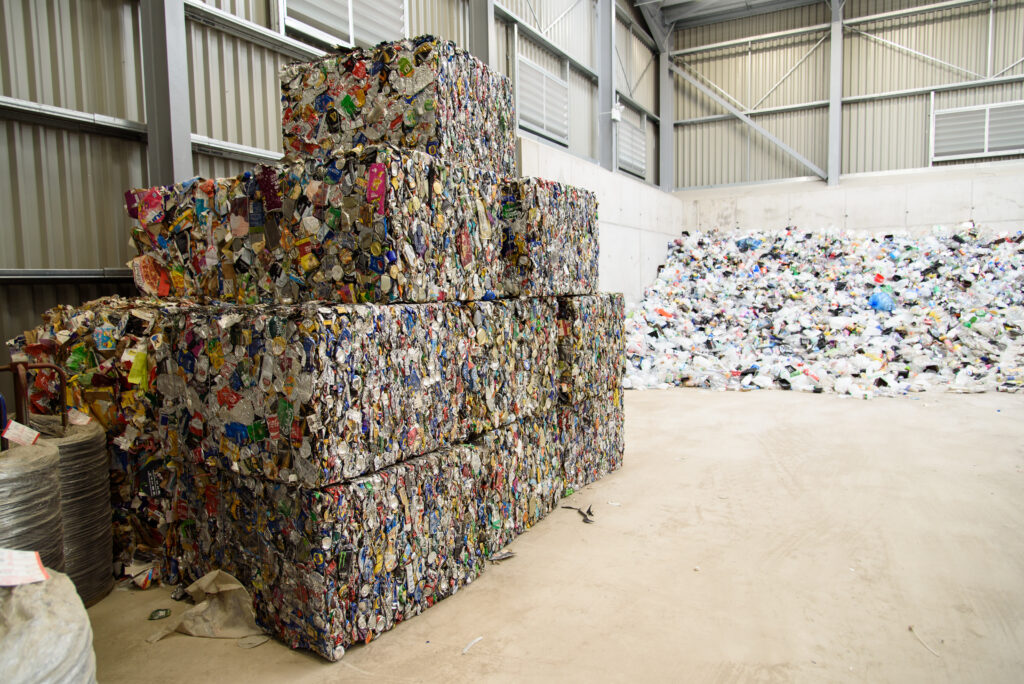The Staffordshire borough will also increase the frequency of recycling collections from fortnightly to weekly when the council brings collections in-house from July 4.

The changes will make Newcastle’s collection system “simpler to use” according to the council – which in the past has been criticised for the number of recycling receptacles issued to residents (see letsrecycle.com story). The local authority’s system was once referred to as a “nine-bin nightmare” in a 2010 Daily Mail article.
Until now, householders in the borough could place as many as nine separate bags or containers out for collection – including a green bag for cardboard, blue bag for paper, a red single-use bag for plastic bottles, and a blue box for cans and glass.
Other receptacles include a wheeled black bin for refuse, a wheeled grey bin for green waste, a kitchen caddy for food waste and a bag for textiles.
Under the changes, the council will replace the bags with; a green box for glass and cardboard, and a red box for metal and plastic bottles. Residents will retain their blue boxes but use them for paper, small waste electricals, batteries and textiles.
Council officers anticipate savings of around £500,000 a year through the new measures – as the colour-coded boxes will be collected by one vehicle each week alongside food waste, instead of every fortnight by two vehicles.
Straight
Council documents indicate that the new boxes have been procured from Straight Ltd with a contract value of £361,685, while new material sorting and baling equipment has been purchased for £168,777 from Bergmann Direct.
The authority has also procured a new waste fleet in order to handle the collection change, delivered by Romaquip Limited and valued at around £1.5 million.
According to Trevor Nicholl, head of recycling, waste and fleet services at the council, the new system mirrors the collection system adopted by several Wales-based local authorities under the Welsh Blueprint.
He said: “It’s better to choose quality over quantity. We have been looking at the outputs and costs of materials recycling facilities and this offers us the best value.”
Mr Nicholl added: “We have had some issues with the single-use bags contaminating the plastics and wind blowing materials across the roads.”
TEEP
Under the Waste Framework Regulations, councils are expected to separate recyclables wherever technically, environmentally or economically practicable (TEEP). In 2014, Staffordshire county council offered its own template to other councils on how to meet the rules (see letsrecycle.com story).
On Newcastle’s decision to reduce separation of materials, Mr Nicholl continued: “We are keeping material separate or separating at source, so we believe that would be TEEP compliant. Plastics, aluminium and steel can be easily separated.”

Previously, recyclables were processed via Newcastle’s contract with Acumen, which continues to operate collections in the borough until the in-house change next month.
New fixed price processing contracts are now due to be signed ahead of the collection changes, with paper to be sent to UPM, steel, plastics and cardboard to Newport Paper, glass to Berryman and aluminium to Novelis.
Record
Commenting on the roll out, Ann Beech, cabinet member for environment and recycling, said: “We’re now in a great position to build further on the borough’s rising recycling record which has more than doubled over the past few years.
“Further improvements will help to create more flexibility to tweak the system while making the collection service one of the cheapest in Staffordshire.”









Subscribe for free